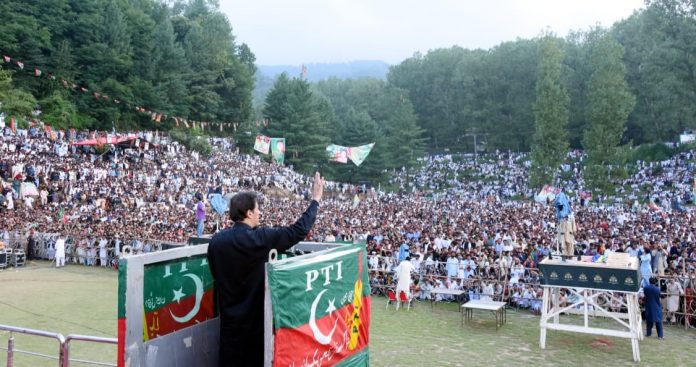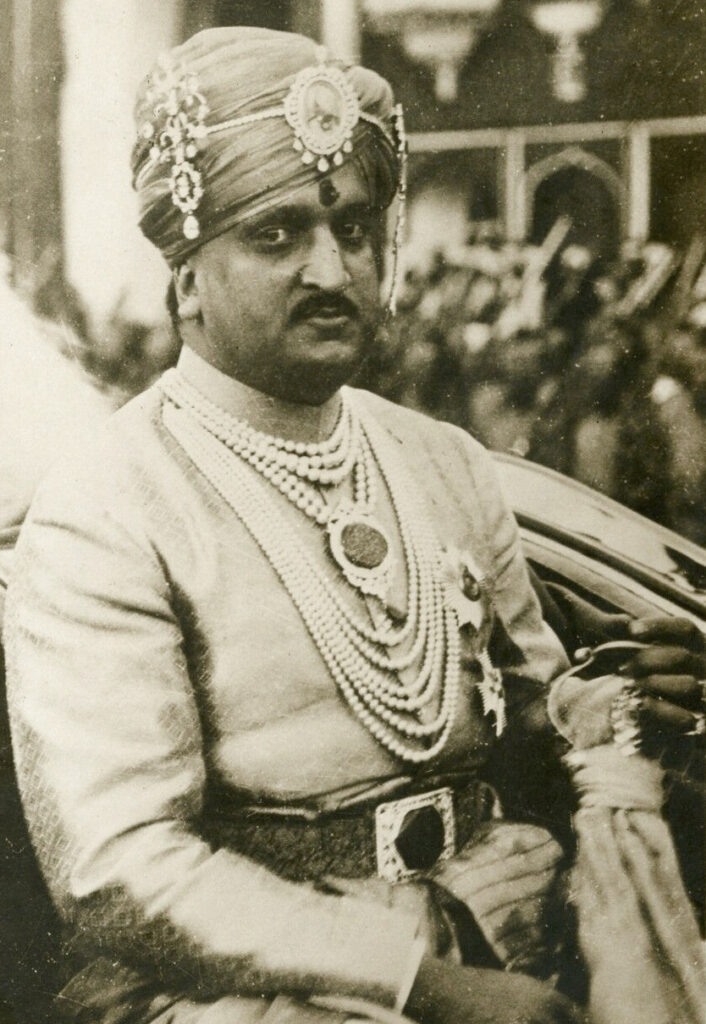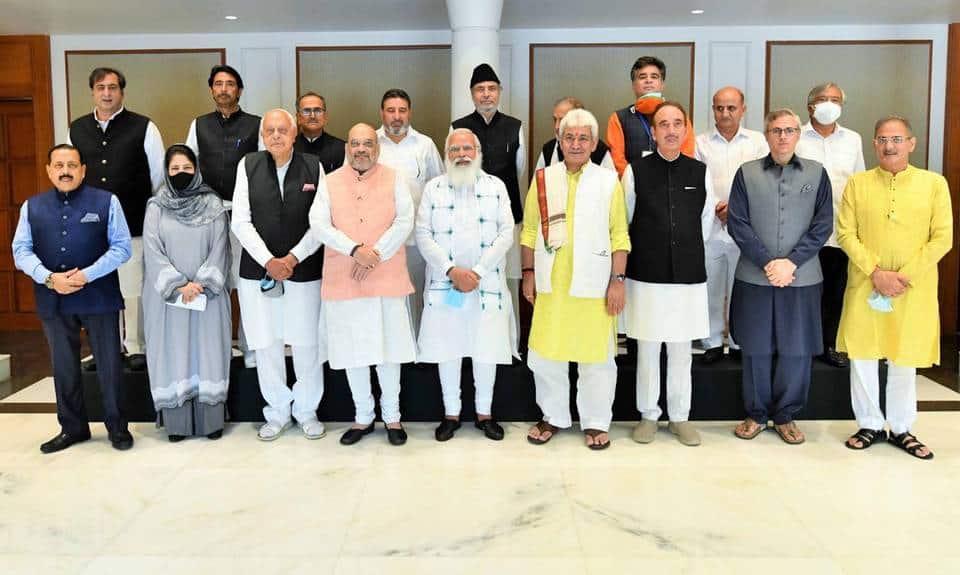POJK Elections, A Sham
The Assembly elections in Pakistan Occupied Jammu and Kashmir (POJK) have concluded on a predictable note. Pakistan’s ruling party, Pakistan Tehreek-e-Insaaf (PTI), won a comfortable majority to form a government. This outcome was known on the very day when elections were announced in POJK last month. This has been a familiar pattern in the Assembly polls west of the LoC where the federal ruling party wins a majority, forms a government, and rules for the next five years.
Pakistan calls this territory as “Azad Jammu & Kashmir,” thereby implying that its inhabitants enjoy some sort of “liberty” or “freedom.” In this “free” land, it builds an anti-India narrative about the part of Kashmir on this side of the de-facto border.
These elections have exposed the weaknesses of the electoral as well as governance systems. The polls are indicative of the people’s growing anger against the Pakistani establishment as the results have subverted the spirit of democracy. The people feel pushed to the wall and it won’t be long before they start seeking other options. At the moment, these options are amorphous.
However, one thing is clear.
The POJK population is disillusioned with Pakistan and disappointed with the way it treats people in the region.
A Political Arena for Mainland Pakistani Parties
This disillusionment became evident as new factors that came to the fore. Prominent Pakistani journalist and author Ejaz Haider tweeted the following on the day of elections (July 25):
This is a loaded tweet with many messages.
An election campaign that usually reflects the issues of its citizens was relegated to the remote background.
Instead, Pakistani political parties washed their dirty linen in the pure waters of the rivers of POJK, thus polluting the whole atmosphere. The three major parties, PTI, Pakistan Muslim League – Nawaz (PML—N) and Pakistan People’s Party (PPP) leveled serious allegations against each other. “Azad” Jammu & Kashmir (AJK) was just another battleground for their mainland politics. The campaign centered around personal allegations between Prime Minister Imran Khan and children of political leaders like PML—N leader Maryam Nawaz.
Pakistani media used words like “ugliest” and “dirtiest” to describe the campaign rhetoric employed by those figures.
Such mudslinging deliberately detracted from the fact that Pakistan has failed in delivering adequately on governance and meeting the basic needs of people there.
PM Khan’s Contradictory Promise
The most intriguing part of the campaign was a promise that Prime Minister Imran Khan made to Kashmiri populations east and west of the LoC. If they acceded to Pakistan, he would grant them “independence.” On the surface, it may sound like music to the ears of Kashmiris asking for “Azadi” or freedom.
Though there is a catch.
It places accession to Pakistan as a prerequisite for the next promised step of “independence.” The UN resolutions, which have become the swan songs of all Pakistani political parties, provide for a plebiscite that grants two choices to J&Kians — India or Pakistan. Through such a promise, Imran Khan is changing the contours and contents of the UN resolution of April 21, 1948. Other Pakistani parties took exception to this. To them, the Prime Minister had no business altering the conditions laid out by the resolution. Although India doesn’t deem these terms relevant because much has changed geographically and politically over the past seven decades on both sides of the LoC.

There was another contradiction in PM Khan’s words. That too, considering the condition of POJK’s people. They are yearning for basic facilities and are almost living in medieval times. Hence, the methods of the elections exposed the claims of Pakistan. Khan himself blamed the local government and his political rivals who ruled the territory without doing anything for its people. This amounts to an admission that aside from emotional slogans, POJK received nothing.
With the elections being rigged, locals rose in protest.
Caging “Azad” Kashmiris
During the protests, the locals said emphatically that these elections were a throwback to the 1947 tribal raids. Like that watershed event, thousands of army personnel and others were ferried from Pakistan to the territory.
Only this time around, they helped manipulate the recent elections.
Clearly, AJKians felt that their own system supposedly designed to represent them was weak. Pakistan’s Minister for Kashmir Affairs, Ali Amin Khan Gandapur, was barred from electioneering following his use of foul language against PML—N leader Maryam Nawaz.
Yet, he defied the edict and appeared with the PM at his election rallies.
Protestors declared, “The elections were held under the shadows of guns. Nonetheless, the brave people voted and expected an outcome as per their own votes.” Another one of the protesting leaders went on to say that they were cheated. Their votes were outright rigged. “This kind of cheating and the violence with which the Pakistan Army tried to suppress the anti-rigging protests, forces us to claim that Pakistan has occupied our territory,” said a dissenter.
The reference to the Pakistani Army-assisted tribal raids of 1947 is very telling. That incursion prompted the last Dogra monarch of the erstwhile Princely State, Maharaja Hari Singh, to seek India’s help in repelling the invaders and sign an instrument of accession to merge the entire J&K territory with India. Naturally, the recent electoral result was akin to the tribal invasion and therefore had no support amongst the local people.

Plus, the post-poll protests against the Army underline the growing resentment against the Pakistani establishment which turned POJK into a vast terror-training ground for the past 30 years. Pakistan has set up so many terrorist camps in the occupied territories that the people are sick of seeing guns everywhere. Earlier, they were witness to the guns of the Pakistani Army.
The same applies also to the guns wielded by terrorists.
Restoring Statehood in Indian J&K
India has an opportunity to watch as these events unfold in POJK. The disenchantment against Pakistan should be allowed to gain the momentum. Locally, the resentment is multi-dimensional in that people are fed up with the indifferent, hostile attitude of Pakistan towards them. With little to no delivery on the ground regarding development and many other issues over the past seven decades, the POJK public is looking for an outlet. One of the slogans heard during the recent post-poll protests was “Kashmir Banega Hindustan” (Kashmir will become part of India).
This slogan was unheard of until a few years ago.

It is imperative that India now take some steps in its backyard by democratically empowering the people of Jammu and Kashmir and granting them the statehood that was snatched from them in August 2019. This will attune people across the LoC to how democracy functions in the Indian state of J&K. The world media will surely shed light on such a democratic practice. Conversely, international press reportage on POJK elections was scarce.
In an editorial published on July 27, the Pakistani newspaper Dawn summed up the elections with the following statement:
“Polls have once again shown – if ever more evidence was needed – that the system in place is incapable of producing an election that can be accepted by all stakeholders.”
And when democracy is subverted, rebellion follows.

